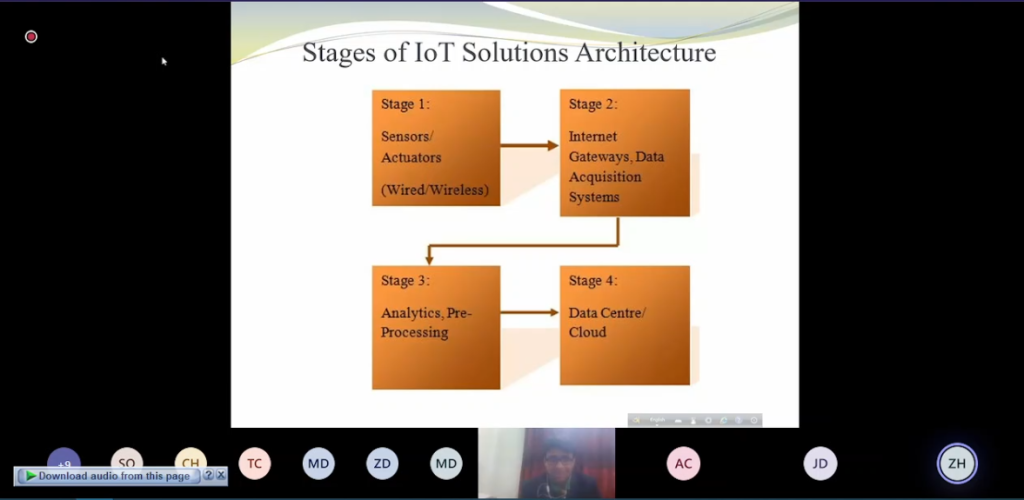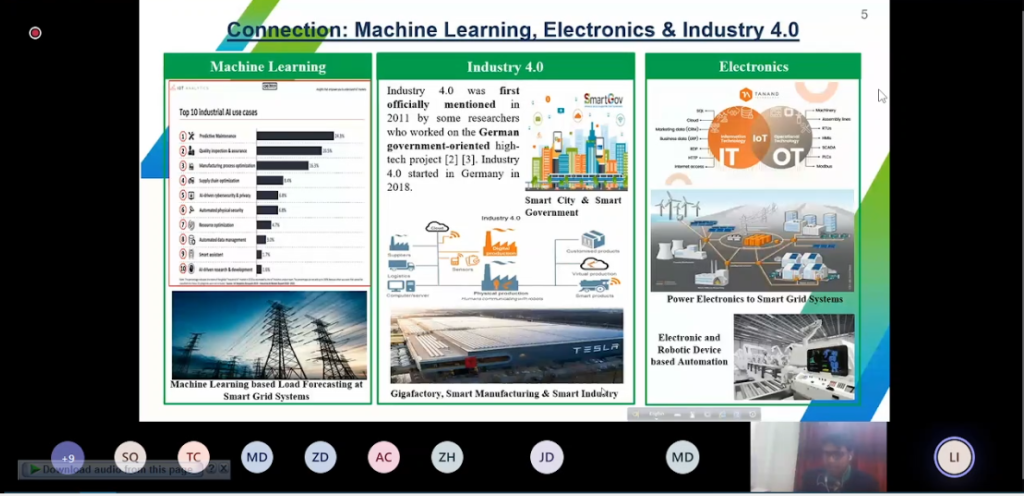By Rubendran Sathupathy
INTI International University’s Faculty of Engineering and Quantity Surveying (FEQS) organized a virtual symposium on “Electronics: The Advancement of Machine Learning in the 4th Industrial Revolution (IR 4.0) Era” on 5th October.
It was presented by three speakers from the Department of Computer Science and Engineering at the Asian University of Bangladesh: S. Rayhan Kabir, Lecturer; Anupam Hayath Chowdhury, Assistant Professor and Head, and Zakir Hossain, Lecturer; the forum was moderated by Ts. Dr. Jeya Gopi Raman and Associate Professor Dr. Muhammad Izzat Nor Ma’arof, lecturers at FEQS.

Dr. Jeya explained that machine learning is a method in which people guide machines to do tasks automatically via repetition. In this way, the machine gradually learns to perform functions by itself without the need for oversight.
Mr. Rayhan spoke about renewable energy and the need for it. He gave an example of how gas turbines are used to increase renewable energy in rural areas.
Meanwhile, Mr. Anupam talked about how machine learning is used, for instance, Arduino, an open-source platform used to build electronic projects to guide the systems to work.
Previously, people had to go and record temperatures manually but with Arduino, they can program it and it can detect temperature fluctuations automatically.
Machine learning uses Artificial Intelligence (AI) systems to do tasks and is automated. This is the difference between IR 4.0 compared to IR 3.0 where people had to use labor. Robotic systems are programmed to repeat tasks according to the input given.

Among the benefits of machine learning are saving labor and removes dependence on people. It gathers data and information without the need for human interaction.
Mr. Zakir discussed AI and neural networks, explaining the AI is the ability of systems to perform tasks that are like humans. Neural networks use AI to train machines to learn from each other.
In response to a question asked by Dr. Jeya regarding the best microcontroller, Rayhan recommended the Raspberry Pi because it is easily available worldwide and easier to program.
20 participants including students and lecturers from INTI and the Asian University of Bangladesh attended the symposium.
